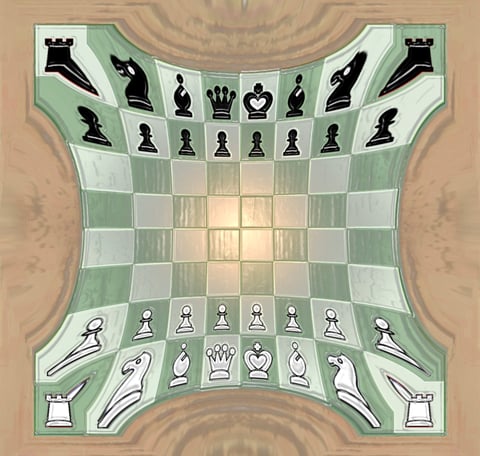Add your promotional text...
04. Past chess variants have not succeeded
Many variants have been tried over the years, but none has gained serious traction
Roy Prasad
1/12/20242 min read


There are at least two dozen chess variants and along with sub-variants, probably more than a hundred variants that have been tried over the past 30-40 years.
Some of the simplest variants have left the properties of the pieces and the rules of game generally unchanged, but added twists like each player gets to make two moves at a time, or a player could cannibalize by capturing a pawn of his own color. While these might adde some variety in specific situations or for problem compositions, they do not generalize well across the game.
More ambitious variants have included ideas such as using board sizes greater than 8x8 squares, hexagonal boards with three players, four player versions with four sets that allow two players to collaborate or all four players to fend for themselves, different rules for the chess pieces based on the situation, introduction of randomness into the game, entirely new kinds of chess pieces, and 3-dimensional chess with multiple planes with the ability for pieces to move between planes.
None of these has gained any serious traction because of one or more of several reasons: they are not easy to understand or apply; they end up biasing the game in some way; they lack broad appeal; or they change the game enough that it is no longer chess.
The motivations have been varied - some have felt the game of chess is too narrowly defined, with only a limited number of pieces and rigid rules they must follow. Others have felt that given enough time, computers would fully “solve” all of chess.
The chess variant that has gained the most traction so far has been Fischer Random, a method invented by Bobby Fischer who had to endlessly face institutionalized opening preparations targeted specifically against him by the Soviet system.
The problem with Fischer Random chess is that it goes against the grain of the game. It is like inviting a set of race car drivers to a Grand Prix, but then hand them cars with some disassembled parts, detached steering wheels, brakes and accelerator positions swapped, flat tires, etc. What are you testing, the drivers’ ability to race, or deal with problems and set backs before they can start driving? What is gained by testing their ability on the wrong things?
The other problem with Fischer Random is, certain starting positions will inevitably favor certain players. This is because some of the possible starting positions will relate to certain players better than they will relate to other players, and that is a rather arbitrary twist thrown in.
In spite of these shortcomings, Fischer Random has gained a foothold, and there is actually a world championship of Fischer Random chess, and FIDE has recognized it as a way to play chess.
G3 Chess overcomes the shortcomings of Fischer Random, and we are certain that it will have a far broader appeal!